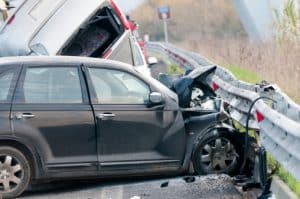Recently, a driver was convicted of manslaughter as well as 10 other offenses in connection with a motor vehicle accident that occurred after the motorist allegedly drove while impaired. According to Pix11, the driver had a blood alcohol concentration (BAC) between .13 and .14 percent after he left a nightclub on the evening of the accident.
The driver struck a BMW, left the scene of that accident, and then slammed on the brakes as he was exiting the highway and caused another car (driven by an off-duty police offer) to stop short. The intoxicated driver, however, did not actually kill anyone whose vehicle he struck. Instead, the person who died was another police officer who responded to the crash scene and who was securing the scene. The responding officer was actually hit by an SUV (the driver of which was given immunity) while the allegedly drunk driver was in his disabled vehicle in the HOV lane and not driving at all.
Although he wasn’t the one who hit the officer, the allegedly drunk driver was still charged with manslaughter for the police officer’s death. The case shows the extent to which culpability is being assigned to people who are impaired by drugs or alcohol. Public policy has led to an intense stigma surrounding impaired driving and legislatures and prosecutors have responded by becoming increasingly tough on OWI crimes. From nationwide efforts to lower the blood alcohol concentration (BAC) limit to .05 to past efforts (declared unconstitutional) to justify warrantless forced blood tests to tougher penalties being imposed on impaired drivers, there has been a strong legal push to make impaired driving an offense with ever more serious consequences. Motorists, especially those involved in an accident, need to raise a vigorous OWI defense to try to avoid life changing penalties.
Defending Against Charges Arising from an OWI Accident
When you are involved in an accident, police officers responding to the crash scene may require toxicology testing to be performed to determine whether you are operating the vehicle while under the influence of drugs or alcohol. Evidence obtained from lab testing, along with details from witness testimony and sometimes testimony from expert witnesses, can be used to try to secure a conviction for offenses not only for operating while impaired but also for related offenses when an accident happens.
You should be careful about any comments that you make at the scene of the accident as you do not want to provide additional evidence that can be used against you. Even when questioned about a car accident, you have the right to remain silent.
You will need to decide if you should raise defenses or negotiate a plea deal if you are charged with involvement in an accident related to impaired driving. An attorney experienced in OWI defense can help you to determine which options are best to try to reduce your penalties or to help you avoid conviction whenever possible based on the available evidence.


